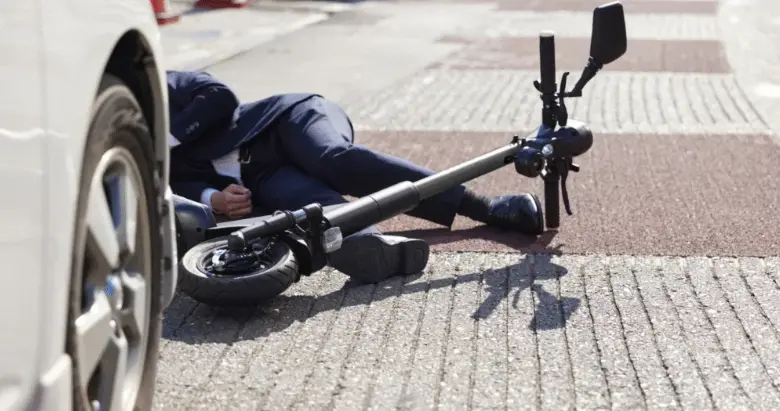When a Minor Accident Turns into a Legal Matter: Steps to Protect Yourself
Picture this: you’re stopped at a traffic light, waiting for green. Someone’s bumper trash your vehicle. You both hop out, check the cars, see nothing major. Nobody’s bleeding. You swap details and drive off thinking it’s handled. Three weeks have passed.
Now you’re staring at medical invoices for neck strain you didn’t feel that day, an insurance adjuster who’s suddenly playing hardball, and the other driver’s invented a story where you backed into them.
Sound far-fetched? This exact situation blindsides thousands of people annually. Learning to protect yourself after such an incident. Yes, even the small ones make all the difference between wrapping things up quickly and spending months in financial and legal consequences that cost you sleep and money.
Recognizing When Your Little Fender Bender Needs Serious Attention
Here’s the thing: not every parking lot scrape demands legal firepower. But specific signals tell you when things are heading south fast. That dividing line between straightforward insurance paperwork and genuine legal complexity? It gets quicker than you’d imagine.
Keep your eyes open for injuries that sneak up 24 to 72 hours later. That little jolt you barely noticed? It might blossom into migraine territory, neck agony, or back complications you couldn’t have predicted at the scene.
Wherever your accident happens near Columbia or elsewhere, your immediate response shapes everything that comes next. When pain surfaces later or disputes erupt about fault, connecting with a seasoned car accident lawyer in Columbia sc becomes vital, but understand this: what you do at the scene creates the entire framework for any potential legal action.
Typical Situations Where You Actually Need an Attorney
Parking structure mishaps with unclear fault turn messy constantly. Since parking zones operate under different rules than regular streets, pinning down responsibility becomes a puzzle. Rear-endings where someone claims you brake-checked them deserve professional eyes.
Highway sideswipes frequently involve several cars, making liability calculations complicated. Even slow intersection taps can cause surprisingly nasty injuries despite cars looking fine. Accidents with drivers carrying inadequate coverage, or worse, none at all, practically demand legal help to safeguard your wallet.
What You Do Right There at the Scene: Building Your Legal Foundation
Being involved in a car accident is stressful, disorienting, and sometimes downright scary. The moments right after a collision are critical, not just for your safety, but for protecting your legal rights.
One common issue? Other drivers may initially admit fault on the spot, only to backtrack later when insurance companies get involved. Lowball offers or pressure tactics from adjusters are a warning sign that you could benefit from professional legal guidance, especially if hidden damage or conflicting witness accounts complicate the situation.
Essential Documentation in That First Quarter Hour
Pull out your phone and become a photographer. Shoot everything like vehicle damage from every conceivable angle, plates, street markers, traffic lights, tire marks, pavement conditions. Get wide establishing shots showing where cars ended up. Injured? Photograph visible wounds immediately, then again over the following days as bruising emerges and evolves.
Use your voice recorder for witness statements while details remain sharp. Collect complete names and how to reach them later. Jot down the timestamp, weather, anything peculiar about the location. Sure, some apps exist for accident documentation, but honestly? Basic photos and written notes accomplish the same goal.
Conversation Rules at the Scene
Understanding what to do after a fender bender means controlling your words carefully. Stay polite, but don’t apologize or utter “I’m sorry”, even when you’re just being sympathetic, it reads as guilt. Exchange only factual necessities: insurance cards, license info, contact numbers. No commentary.
Don’t theorize about causes or circumstances. Saying things like “I wasn’t paying attention” or “The sun blinded me” can torpedo your case before it launches. If the other person gets hostile, maintain composure and refuse the bait.
The Three-Day Critical Period: Your Post-Crash Legal Checklist
Those 72 hours after impact establish the groundwork for whatever follows. How you handle this window either fortifies or undermines your legal standing dramatically.
Medical Records That Build Your Case
Get examined within one day, even feeling perfectly fine. Adrenaline’s a powerful drug that masks pain initially, and certain injuries—whiplash, concussions—operate on delayed fuses. Hit up your regular doctor, walk-in clinic, or ER. Just get checked and establish that medical paper trail connecting any problems to your accident.
Start a detailed symptom diary with precise timestamps. Track pain intensity, movement restrictions, sleep problems, daily activity limitations. This chronological evidence becomes courtroom gold if litigation happens. Organize every medical bill, prescription slip, and treatment recommendation in one dedicated location.
How to Handle Insurance Notifications and Settlement Reality
Alert your carrier promptly, contracts typically mandate reporting within that 24-to-72-hour window. Share basic facts without fault speculation or injury guesswork. Remember: they’re recording everything you say for potential use against you.
Proper legal steps after minor accident situations include grasping this reality: insurance companies engineer initial offers to protect their bottom line, not fairly compensate you. They’ll aggressively push quick settlements before you comprehend your injuries’ full scope.
When Your Insurance Company Plays Dirty
Insurance adjusters serve their employers, not you. Companies obsess over quarterly earnings. Recognizing their standard playbook protects you effectively.
Settlement Games and Unrealistic Requests
Notice excessive delays processing your claim or aggressive pressure to settle immediately for pennies. Companies might demand mountains of paperwork or medical authorizations granting access to completely unrelated health history. They’ll mischaracterize what your policy actually covers or reject claims without legitimate investigation.
Those early settlement checks rarely reflect your claim’s genuine worth. They’re banking on your ignorance about injury economics and your immediate cash needs to lock you into inadequate amounts. Sign nothing before consulting counsel and calculating future medical costs, possible complications, and vehicle value diminishment.
Clear Signs You Need Professional Representation
Medical bills crossing $5,000 from what appeared minor warrant legal consultation. Lost income threatening your financial stability justifies representation. Permanent marks, disfigurement, or any injury compromising work capacity demands advocacy.
Liability disputes requiring legal argumentation exceed DIY capabilities. Multiple involved parties create finger-pointing chaos nobody navigates alone successfully. These scenarios require someone fluent in comparative negligence statutes who builds persuasive cases professionally.
Navigating Specific Legal Landscape
Reporting minor car accidents follows particular mandates varying by damage totals and injury severity. Knowing these regulations prevents penalties and preserves your claim.
State Reporting Rules and Comparative Negligence Framework
For instance, South Carolina mandates reporting any accident involving injuries or property damage exceeding $1,000 to the DMV within 15 days. Missing this requirement triggers fines or license suspension. Even without police attendance, you must submit supplementary documentation.
The state operates under modified comparative negligence, meaning you collect damages only if you’re under 51% at fault. Your recovery decreases proportionally with your fault percentage. Fighting fault assignments becomes crucial near that 51% threshold. Insurers will actively work to shift blame and minimize payouts, making precise documentation absolutely essential.
Preserving Evidence and Social Media Dangers
Back up every photo and video to multiple cloud services immediately. Traffic camera recordings typically purge after 30 to 90 days, so request them promptly from municipal authorities. Ask neighboring businesses for surveillance recordings before they overwrite older files.
Lock down your social media privacy and post absolutely nothing accident-related. Insurance investigators actively trawl profiles hunting contradictory material. That beach vacation photo showing you kayaking after claiming shoulder injuries? Case destroyed. Even innocent content gets weaponized against you.
Protecting Your Interests: The Bottom Line
Minor accidents morph into legal nightmares when injuries appear days afterward, drivers fabricate alternate narratives, or insurance companies unleash hardball tactics. Your conduct during those critical initial hours and days, thorough documentation, prompt medical attention, understanding particular requirements, establishes the foundation protecting your rights.
Don’t rush settlements, don’t assume everyone’s operating honestly, and don’t delay seeking professional guidance when warning signals flash. That modest investment in proper legal consultation now prevents thousands in rejected claims, inadequate settlements, and legal complications later. You’ve got one chance to handle this correctly, make it count.
Common Questions About Minor Accidents
Can someone sue me months later after we handled it privately?
Even after an initial settlement, the clock on your rights doesn’t always run out immediately. In many states, personal injury claims can be filed years later, and private agreements without proper legal releases offer little to no protection against future disputes. That’s why having a documented, attorney-reviewed settlement is so important, it safeguards your interests and gives you real peace of mind.
Will my rates jump even though I wasn’t at fault?
Even if you weren’t at fault, insurance premiums can still rise over time due to your overall claims history. Some carriers offer accident forgiveness programs that can shield you from a rate increase after a single mishap. It’s also worth exploring other insurers, comparison shopping after an accident can sometimes uncover significant savings.
Do I genuinely need an attorney for basic property damage without injuries?
Not necessarily, but consider consultation when damages approach $3,000, when fault gets disputed, or when hidden damage surfaces later. Free consultations clarify whether representation makes economic sense for your specific circumstances.
Also Read-Understanding Grandparents’ Rights Under Texas Family Law

